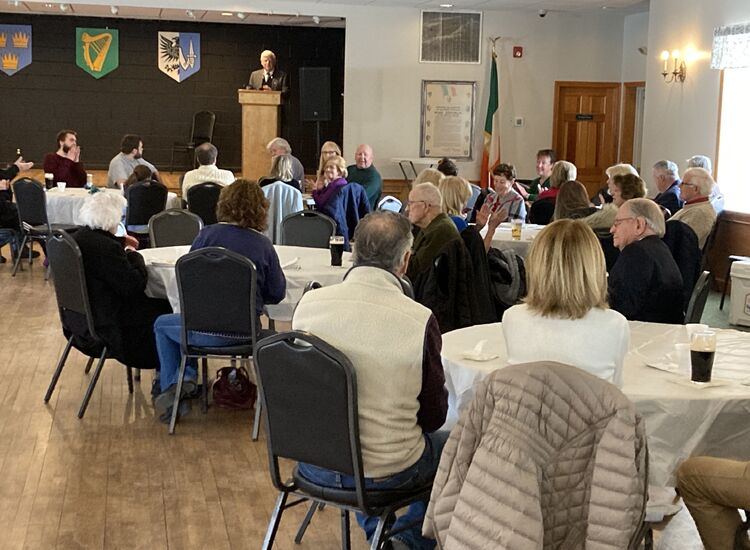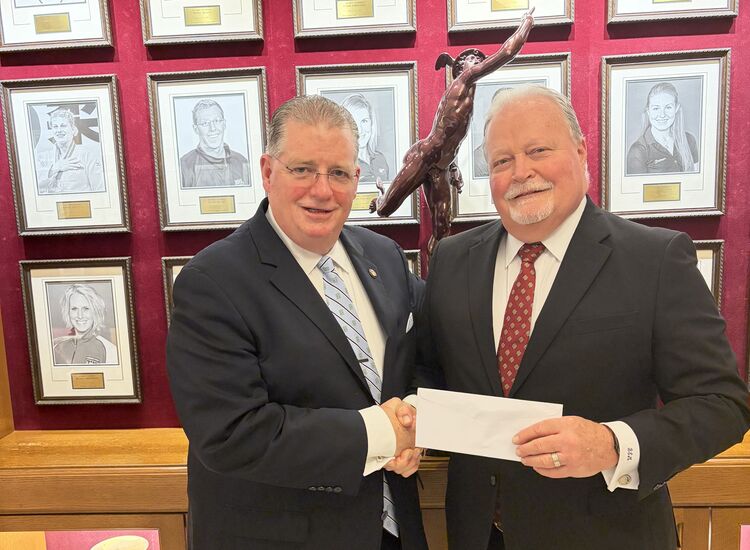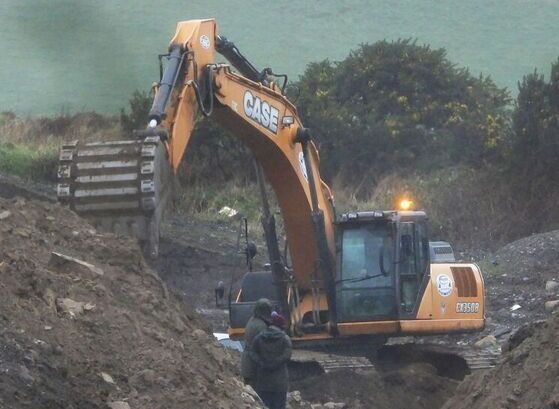“My father was a civil servant and he had worked for the British civil service until 1920 when the change of government meant he decided he didn’t want to stay any longer in Ireland. I think he was worried about the possibility of religious discrimination; he was a Protestant, and he transferred to what was then the General Post Office in England
“…probably there was a basis of truth in it, that when a situation had been so manifestly unjust that Protestants were favored over Catholics, that when the change of government came the boot was going to be on the other foot and I think that was probably a fairly accurate perception on his part.”
“Homeward Bound” author Niamh Dillon explained: “This quote is from Olive Stevenson who I interviewed when she was in her 80s. Before meeting her, I had recorded many Irish Catholics, but had never really considered the fate of Irish Protestants in the troubled decade of 1912-1922.
“Yet, between 1911 and 1926, the number of non-Catholics in the Irish Free State dropped from approximately 313,000 to 208,000. Homeward Bound shines a light on a neglected aspect of twentieth century Irish migration history. It compares two groups of migrants – Southern Irish Protestants, and the British in India, who left Ireland and India after independence in 1922 and 1947 respectively, and compares their experiences in the late British Empire, their decision to leave Ireland and India after independence in 1922 and 1947, and their ‘return’ to Britain.”
Dillon, who is the Project Director of National Life Stories at the British Library and is also working on a corporate history of engineering infrastructure company J Murphy and Sons, continued, “By looking across national boundaries, it explores both individual and collective narratives of imperial identity in the late British Empire. ‘Homeward Bound’ examines the lives of these ‘ordinary’ people—although in many cases their lives are extraordinary—who were part of the global imperial network that composed Britain’s empire. By interviewing those who experienced these events first-hand, and using the recently opened files of the Irish Grants Committee at the National Archives in Britain, this book offers new insights into lives in the late British Empire as it moves from lived experience into recorded history.”

The main factor, Dillon found in her study, that led people to travel to Britain was the same in both the Indian and Irish cases: “The desire to remain as part of an imagined community of British imperial subjects.”
However the differences between the two experiences were also marked.
“The British were located in India but imaginatively connected to Britain as ‘home.’ In Ireland, there were multi-layered identities – British, Irish, and imperial—that sometimes existed simultaneously,” she writes in the book’s conclusion. “This was partly linked to climate and landscape, as those in Ireland felt a strong connection with both, often emerging from generations of occupancy. In contrast, the British in India often saw the climate and landscape as a threat, a site of danger, disease, and discomfort and potential racial degeneration. They rarely owned property and often moved frequently.”
Education was used in both countries “to implicitly and explicitly encourage an imperial worldview.” The preferred means was sending children to Britain, if possible, but there were different responses to that experience. “Evidence suggests that those from Ireland developed a stronger sense of their connection to Ireland when at school in Britain, whereas pupils from India often did imbue the imperial ethos and returned to India to become part of the next generation of imperial administrators and military officers.”
Of course, for many sending their children to Britain was not affordable, but even those “who educated their children in Ireland and India could still be assured of a curriculum that promoted British values and achievements.”
She says, “Education in India and Ireland gave hegemonic status to British language, culture and history while diminishing that of the ‘native’ population.”
“However,” Dillon adds later, “the unintended consequence of the education policy [in Ireland] was to create a legitimate site of resistance to British rule, as the Catholic Church insisted on managing the education of Catholic children, thus subverting control from the authorities.”
Many from India, too, experienced the “shock of arrival,” confronted with “the contrast between their imagined vision of Britain and the reality of postwar, war-torn Britain.”This was less true of the southern Irish Protestants as they were more familiar with the environment and “also had a less privileged lifestyle in Ireland than the British in India.”
These members of the British diaspora would reconsider, says Dillon, their sense of belonging, which tended to change over time.
“Many southern Irish Protestants revealed how, despite being brought up with British affiliations and loyalties, they reconnected with a sense of Irish identity later in their life. The British in India also reconsidered their position in the latter part of their lives and in so doing often moved away from national identity to connection with something more personally connected with family and faith. The process of relocation was not always an easy transition. Returnees imagined they were part of a community of Britishness, but when the image collided with the reality, they found they were situated within an imperial diaspora rather than a metropolitan elite.”
Professor Richard S. Grayson, Goldsmiths, University of London, has written about Dillon’s book: “This excellent study opens up important new ground for many historians. It is a major contribution to understanding a relatively neglected aspect of Irish history, and adding understandings of Britishness and specifically Englishness.”
Niamh Dillon
Place of birth: Dublin
Spouse: Yes. Just the one.
Children: Two.
Residence: London
What is your writing routine? Are there ideal conditions?
Ideally, no distractions, quiet, coffee and biscuits and unlimited time. And comfortable clothes – seriously! No-one works well in high heels. But all these conditions rarely collide. And when I’ve spent four hours and written only rubbish, I remember the famous Samuel Beckett quote, Ever Tried. Ever Failed. No Matter. Try Again. Fail Again. Fail Better.
What advice do you have for aspiring writers?
The advice above! And try and find someone, anyone, that you can share your ideas with. Writing alone is difficult. It is hard to have perspective on your own work. And don’t throw anything away – file it.
Name three books that are memorable in terms of your reading pleasure.
“Under Milk Wood” by Dylan Thomas. I read this when I was about 16 and was captivated by the way in which he creates a whole fantastical world in a tiny village. Also, his writing was so beautiful, that although I would love to write fiction, I knew I would never be able to match that.
“A Star called Henry” by Roddy Doyle. To open up history and make it compelling is difficult, but he achieves it with this.
Not a book but a play – and two at that. “The Beauty Queen of Leenane” by Martin McDonagh, and “Cyprus Avenue by David Ireland” - there are two monologues in each which say more about conflicted Irish identity than many history books.
What book are you currently reading?
“Trespasses” by Louise Kennedy, set around Belfast in the early 1970s. It is centred on a forbidden love affair, but gives such a sense of the increasingly dysfunctional world of that period.
Is there a book you wish you had written?
So many! Anything by historians Catherine Hall or Roy Foster.
If you could meet one author, living or dead, who would it be?
I always thought it would be James Joyce, but actually that would probably be terrifying, all that Latin, and classical references…. So actually, Roddy Doyle.
What book changed your life?
Probably “The Ragged Trousers Philanthropists” by Robert Tressell.
What is your favorite spot in Ireland?
Dublin, obviously! But also West Cork around the Mizen Head, because it is just straight up spectacular.
You're Irish if...
you think anything over 24 degrees [75 F] is “way too warm’” and need to sit in the shade.








